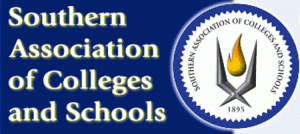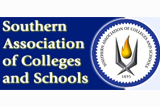By Kenney Kost/editor-in-chief
 Students may be asked to discuss the finer points of critical thinking and the district’s quality enhancement plan when representatives from the Southern Association of Colleges and Schools visit all five campuses this month.
Students may be asked to discuss the finer points of critical thinking and the district’s quality enhancement plan when representatives from the Southern Association of Colleges and Schools visit all five campuses this month.
Representatives from SACS will start touring campuses Nov. 18 as part of TCC’s reaccreditation process, said director of quality enhancement Jill Pool. They will mainly interview faculty and students about the district’s quality enhancement plan, which focuses on critical thinking in the classroom.
Every 10 years, TCC has to go through the reaccreditation process, Pool said. Part of the process is turning in a compliance document.
“The QEP [quality enhancement plan] is one component of that document,” she said. “And because this is our first QEP, that is a big focus this time.”
The compliance document was submitted to SACS in August, said NE history instructor and NE QEP coordinator Tramaine Anderson. SACS has gone over all portions of the document and is now strictly focused on student learning and TCC’s improvements in this area.
“This visit is geared more toward student learning and the environment of student learning,” Anderson said.
SACS representatives will interview pre-selected students and may randomly stop students to ask a few questions or a full-on interview about critical thinking and the QEP, Pool said. TCC was given a tentative schedule and asked to gather a group of students for interviews.
QEP coordinators from each campus have been meeting with student organizations and groups to find volunteers to be interviewed, Pool said.
“Interviews will be done in smaller groups, and while they are here, they may also select students,” she said. “They could ask to speak with SGA members from a campus or just stop a student and see if they know what the QEP is.”
Sociology instructor and South QEP coordinator Maureen Hockenberger said critical thinking was selected as the QEP focus for many reasons, but the main reason was to cultivate awareness of what it truly means to think critically.
“One of the findings in the data was that students understood in a general sense what critical thinking was and that it was important,” Hockenberger said. “But they had a hard time distinguishing between various components of critical thought. We want to make the process of critical thinking explicit to students in the classroom.”
Anderson said another reason for selecting the topic of critical thinking was the job market and employers’ desires for employees.
“When we talked to some of the big employers in the area like Bell Helicopter and Lockheed Martin, critical thinking is one of those big skills they are looking for,” she said.
This initiative is a five-year plan, and Pool said she hopes it becomes ingrained into what it means to learn at TCC. She also said she likes the fact that student input and faculty have really guided the process.
“Rather than come from administration and trickling down, this has come from the bottom and worked its way up,” Pool said.
Hockenberger said it was an obvious choice. Once the core team began tossing the idea of critical thinking around, it became clear that was the direction the quality enhancement plan needed to take.
“Critical thinking is the very essence of what it means to be educated,” she said. “You can memorize a book, but what can you do with that knowledge?”

